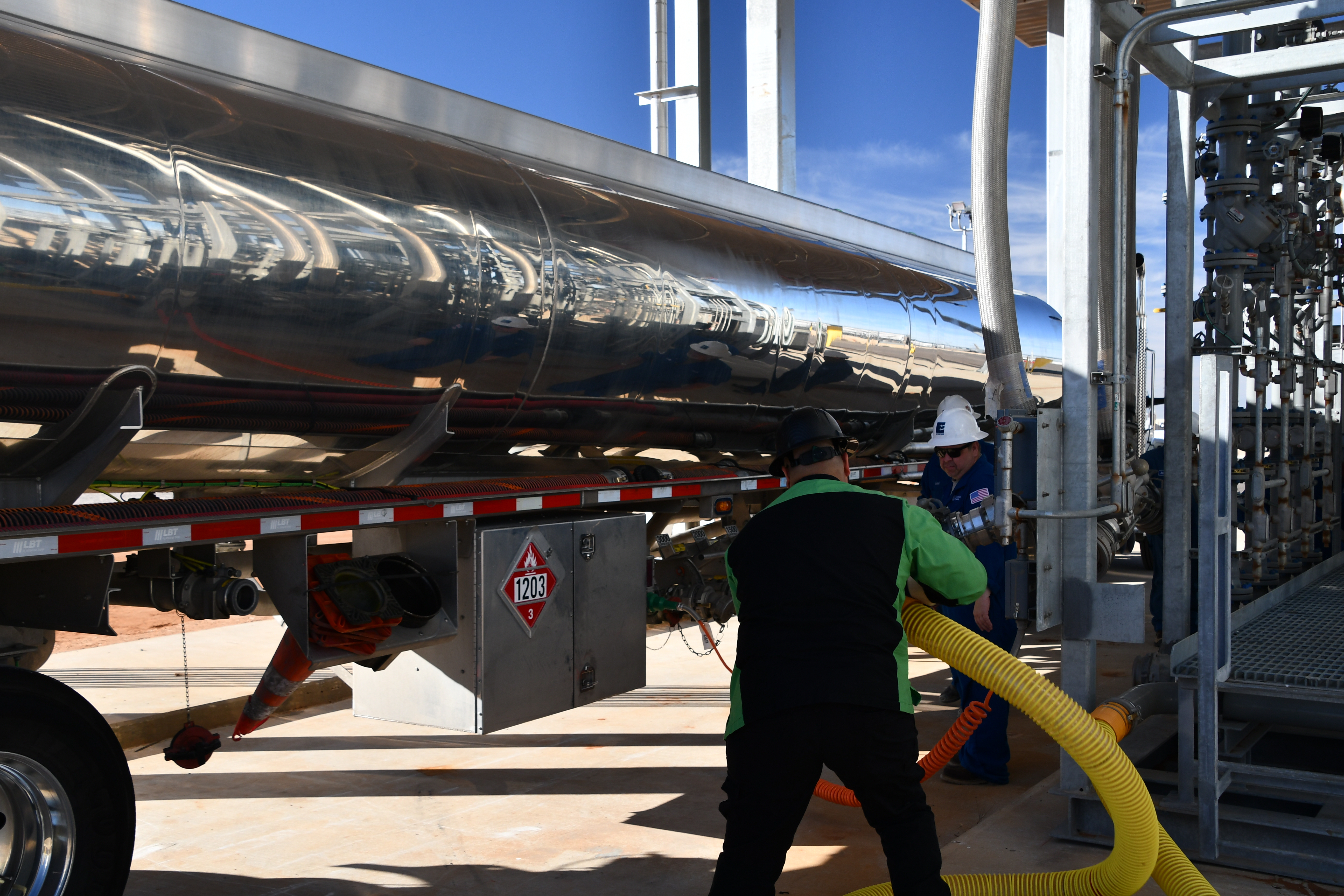Texas Oil Companies Restart Operations After Hurricane Beryl
(Reuters) — Oil and gas companies in Texas were restarting operations on Tuesday after Hurricane Beryl lashed the state with 80-mph winds, damaging property and leaving millions of people without power.
Beryl made landfall early on Monday near the coastal town of Matagorda. Energy firms shut operations ahead of its arrival and Texas' largest ports and navigation channels closed. However, its impact on oil and gas production is expected to be minor.
On Tuesday, some ports had reopened, and most producers and facilities were ramping up output after preventively cutting down processing. Some were limited by the slow restoration of power to homes, businesses and industrial customers.
About 2.28 million customers remained without power in Texas and 30,000 more in Louisiana and Arkansas early on Tuesday, according to PowerOutage.us, including some 1.78 million served by provider CenterPoint Energy.
The figure was more than double the number of customers that lost power in May when a weather event bringing strong winds hit Houston. It took more than a week for those outages to be resolved in some city neighborhoods.
CenterPoint said on Monday that it expects to have 1 million impacted customers restored by the end of Wednesday.
Houston was expected to be sunny with temperatures in the high 90 degrees Fahrenheit (32.2°C), causing worries as power outages knocked out air conditioning. The Heat Index in southeast Texas could reach as high as 106 degrees Fahrenheit, according to the National Weather Service.
Beryl lost strength quickly upon making landfall and by Tuesday morning had been downgraded to a post-tropical cyclone, the U.S. National Hurricane Center said. It warned that flash flooding and the risk of tornados remained possible from mid-Mississippi to Lower Ohio Valley on Tuesday.
Texas Flooding Easing
Texas is the largest U.S. oil and gas producing state, accounting for some 40% of oil and 20% of gas output, and is also a major shipping and refining hub. Any weather-related interruption could have an impact on crude and fuel production levels, as well as imports and exports.
"Although the hurricane did not cause severe disruptions in U.S. oil production and refining so far, several oil ports remain closed while vast power outages can weigh on oil demand," Goldman Sachs said in a note.
Flooding in city regions was easing as water receded quickly after Beryl's severe rainfall, which surpassed 11 inches in some areas south of Houston.
Most refineries in Houston and Texas City are designed to maintain operations even amid heavy rainfall, but some of those facilities, ports and other energy infrastructure can develop problems from sustained power interruptions, experts said.
Marathon Petroleum Corp. was preparing on Monday to restart multiple units at its 631,000-bpd Galveston Bay oil refinery in Texas City, sources said. The plant was awaiting power to restart operations, the company said in a state regulatory filing.
Phillips 66's 265,000-bpd Sweeny refinery in Texas returned plants to normal operations after an upset early on Monday caused by Beryl.
Citgo Petroleum temporarily reduced production over the weekend at its 165,000-bpd Corpus Christi plant.
Ports from Point Comfort through Houston, including Freeport, Galveston, and Texas City, saw damage in various forms along with substantial operational delays, a shipping agency wrote in a note to clients.
The Port of Corpus Christi reopened ship navigation on Monday and the port of Freeport reopened on Tuesday. But the Port of Houston said its terminals would remain closed on Tuesday after conducting a preliminary assessment of facilities and systems.
While some ships may begin moving into the port of Houston on Tuesday afternoon, deep draft ship movements would not likely begin until Wednesday after the safe reopening of its various channels, the shipping agency wrote.
Formosa Plastics said on Monday it had temporarily shut down operations at its Point Comfort plant site.
Shell, Chevron and BP started redeploying personnel evacuated from their Gulf of Mexico platforms.
Freeport LNG, the third largest liquefied natural gas facility in the U.S., has not provided an operational update since it said it ramped-down production on Sunday.
Enterprise Products Partners said a unit tripped due to the weather at its natural gas liquids (NGL) processing facility in Mont Belvieu, in east Texas, according to a filing.
Energy Transfer also faced issues at Mont Belvieu, according to filings. Mont Belvieu is an NGL processing and storage hub as well as the pricing point for North American NGL markets.
Related News
Related News

- Kinder Morgan Proposes 290-Mile Gas Pipeline Expansion Spanning Three States
- Enbridge Plans 86-Mile Pipeline Expansion, Bringing 850 Workers to Northern B.C.
- Intensity, Rainbow Energy to Build 344-Mile Gas Pipeline Across North Dakota
- U.S. Moves to Block Enterprise Products’ Exports to China Over Security Risk
- Court Ruling Allows MVP’s $500 Million Southgate Pipeline Extension to Proceed
- U.S. Pipeline Expansion to Add 99 Bcf/d, Mostly for LNG Export, Report Finds
- A Systematic Approach To Ensuring Pipeline Integrity
- 275-Mile Texas-to-Oklahoma Gas Pipeline Enters Open Season
- LNG Canada Start-Up Fails to Lift Gas Prices Amid Supply Glut
- TC Energy’s North Baja Pipeline Expansion Brings Mexico Closer to LNG Exports





Comments